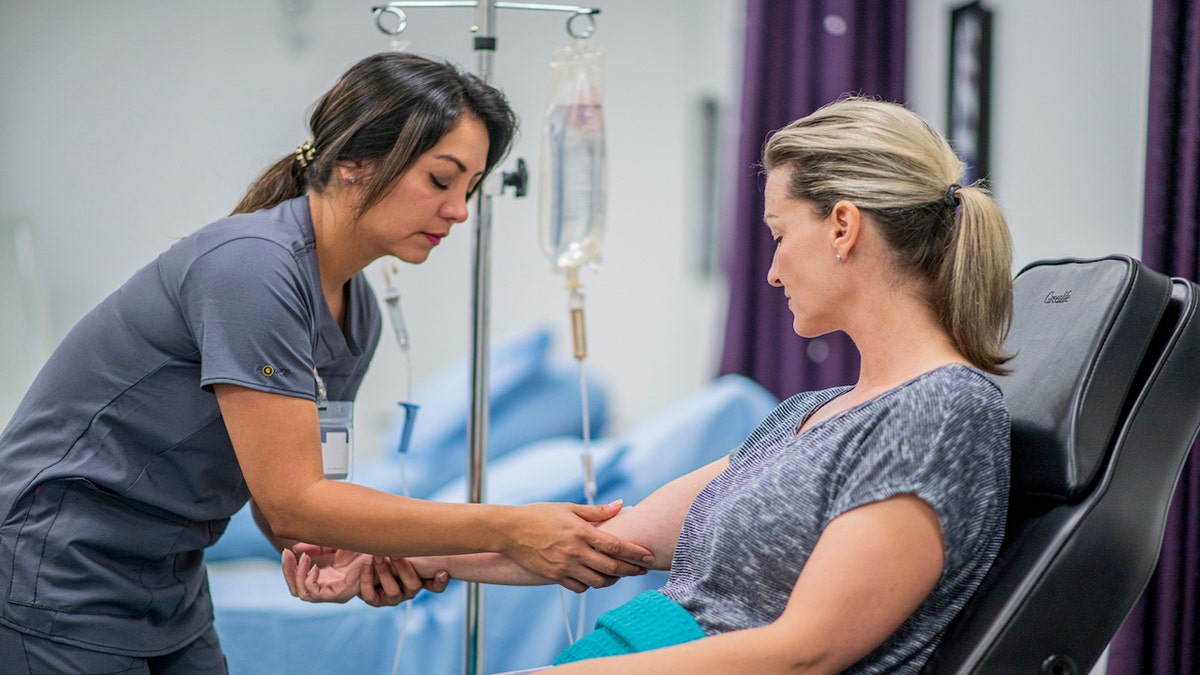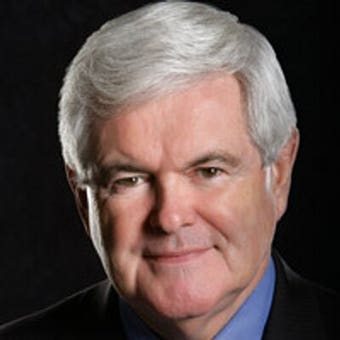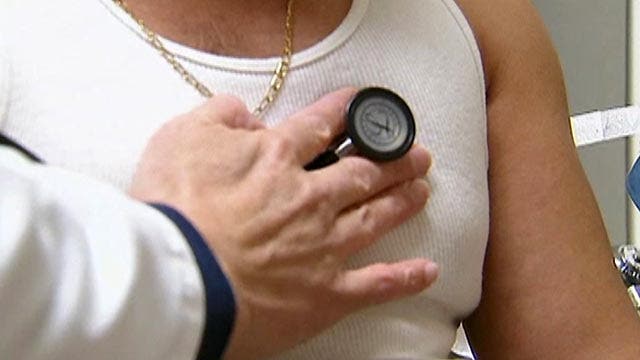Our healthcare is putting patients at the back of the bus: Ron DeSantis
2024 GOP presidential candidate Ron DeSantis gives his answer on the cost of insurance for Americans during the second GOP debate at the Reagan Library.
Twenty years ago this December, President George W. Bush signed the bipartisan Medicare Prescription Drug, Improvement and Modernization Act of 2003. In addition to creating the Medicare Part D prescription drug benefit, the bill created the Health Savings Account (HSA).
Health Savings Accounts are sometimes criticized as being a tool for the wealthy, but in fact, 78% of the over 31 million Americans with an HSA have a household income of less than $100,000. That’s because the HSA is the most powerful retirement savings vehicle for the middle class ever created – even better than a 401K.
Not only can the funds in the account be invested in stocks, bonds and funds, but they can also be withdrawn without penalty so long as they are spent on a qualified medical expense. This makes HSAs unique in that both the contributions and disbursements are tax free.

It is time to extend the benefits of Health Savings Accounts to more people. (iStock)
Since 2004, over $100 billion has been saved tax free in HSAs and, according to a 2022 survey by Heath Equity (who operates HSAs), 63% of people with HSA feel confident they know how much they will need for retirement versus 48% without one.
AMERICANS SAVE MORE IN HSAS, FIDELITY REPORTS HSA ASSETS EXCEED $16 BILLION
HSAs have also been a success in bringing market forces to health care. The same survey revealed that 65% of people with HSAs comparison shop before purchasing health care, compared to 58% who do not. Notably, the survey was taken before Trump administration price transparency rules went fully into effect.
These successes notwithstanding, after two decades, it is time to update and modernize HSAs.
For instance, ObamaCare has driven up deductibles for high deductible health plans (HDHPs) well past the annual HSA contribution limit of $3,600, and even plans that do not qualify as HDHPs still come with significant out-of-pocket costs.
More fundamentally, it is time to extend the benefits of HSAs to more people. Only 30% of Americans with employer provided insurance are eligible for HSAs, and the low-income populations that could benefit the most from the powerful savings advantages of HSAs are shut out from accessing them if they are enrolled in Medicaid.
Fortunately, the House Ways and Means Committee advanced two bills recently that will significantly expand the benefits of HSAs to those currently with accounts and expand access to those benefits to more people.
The HSA Modernization Act would allow significantly more people to own and contribute to an HSA. Currently, only individuals who are covered by a high-deductible health plan are allowed to own an HSA. This proposal would expand HSA eligibility by allowing individuals covered by Medicare, the Veterans Administration, the Indian Health Service, and ACA bronze and catastrophic plans to enroll in HSAs.
BIDENOMICS IS A BIG PROBLEM FOR SENIORS
The bill would also allow individuals to save more money every year for their health expenses. The proposal would double the amount of money Americans can contribute to HSAs from $3,850 for individuals and $7,750 for families to $7,500 and $15,000, respectively.
The HSA improvement Act would also empower individuals to gain access to innovative new health care arrangements. Under current law, the IRS prohibits HSA funds from being used for direct primary care (DPC) expenses. DPC is a subscription-based care model that improves patient health and lowers costs. This bill would repeal this harmful prohibition on DPC.
The HSA Improvement Act also removes many of the bureaucratic penalties that prohibit married couples from utilizing their HSAs as a family unit and increase the range of mental health services eligible to be used with HSAs.
These two bills are significant steps forward. The House should pass the bills and send them to the Senate. But there is more to be done.
Most importantly, we should extend the benefits of HSAs to low-income Americans. We can do so by allowing low-income Americans enrolled in Medicaid and ACA exchange plans to receive their Medicaid and ObamaCare subsidies as an HSA contribution.
CLICK HERE FOR MORE FOX NEWS OPINION
We should expand upon a 2019 Trump administration IRS rule change that classified many health care services needed by people with chronic conditions as preventative services. This was an important change because preventative care is allowed to be covered by HDHPs before reaching the deductible. This makes HDHPs and the associated HSAs more attractive and practical for people with chronic diseases, and gives people with preexisting conditions additional protections.
We should also explore allowing HSA funds to pay insurance premiums in the individual market. This would give Americans much more flexibility when changing or leaving jobs to find and afford coverage during the transition.
The first step would be to remove all restrictions on HSA ownership, to allow any American, regardless of insurance status, to open an HSA, not just those with a HDHP. We should also find ways to synergize HSAs with Health Reimbursement Accounts (HRAs), such as allowing employees to transfer some of their remaining HRA funds to their HSA when changing jobs.
CLICK HERE TO GET THE FOX NEWS APP
There is no doubt that the U.S. health care market needs fixing. However, it wasn’t broken overnight, and it can’t be fixed overnight. The growth of Health Savings Accounts in America over the past 20 years is a positive step in the direction of a more patient and doctor driven system that improves quality of care and lowers costs.
Passing the HSA Modernization Act and the HSA Improvements Act, along with additional reforms, will ensure continued progress for the next 20 years.
CLICK HERE TO READ MORE FROM NEWT GINGRICH
CLICK HERE TO READ MORE FROM BOBBY JINDAL
Bobby Jindal was the governor of Louisiana from 2008-2016. He chairs the Center for a Healthy America at the America First Policy Institute.














































